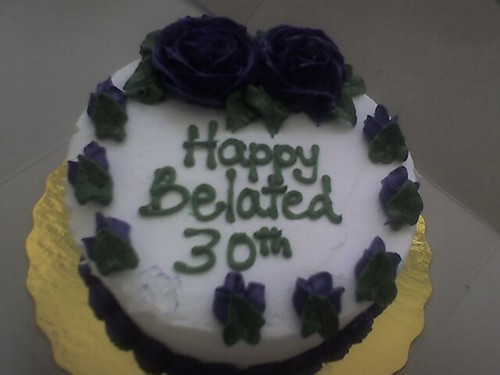March 16, 2009
Daniel De-Gale, the inspiration for the UK-based charity African Caribbean Leukaemia Trust, was born on March 17. This young man passed away late last year, but he left a lasting legacy and his family and community continue to work to increase the chances that others get more time on this earth to spend with their friends and family with the continued help of people generous to lend their energy to increasing the number of blood and bone marrow donors, especially from an African Caribbean and mixed ethnicity background.
This year the ACLT and the National Blood Service are hosting the first annual Daniel De-Gale Blood Donation Day, to encourage blood donation.
Many people are not eligible to donate blood:
It did.
This year the ACLT and the National Blood Service are hosting the first annual Daniel De-Gale Blood Donation Day, to encourage blood donation.
Many people are not eligible to donate blood:
- If you are not, you or someone you know may require a blood donation one day. No one can predict that they will one day need a blood transfusion on a one-time or regular basis. But when it's needed, you want it to be there.
- You can still learn about the basic eligibility rules. It's important to dispel myths others have built up. Also eligibility rules can change. I was not eligible to give blood at one point, and I checked the rules a few years later and in my case, they had changed. I was recently told I could not give blood until Dec 24, 2009. This is a temporary deferral, but many people treat a temporary ban, as a permanent one and stop donating. If you have ever been barred from donating, this is a good time to recheck your status.
- Discuss blood donation with your loved ones. Children and siblings may not consider blood donation unless it is made a part of your immediate family culture. This is a good day to sit down, and have a discussion about blood donation and how it helps people live their lives.
- Only a very small fraction of the general population donates blood, however it would only take about 5% of the general population to donate blood in many countries to meet the current demand for that region.
- Your ethnicity matters. While two people from different ethnicities can match each other, rare blood type distributions differ by ethnic group.
- Genotyping blood donors can decrease the chance of dangerous adverse immune reactions, even more likely to happen with frequent recipients of blood products - cancer patients, sickle cell anemia and thalassemia sufferers. People within the same or similar ethnic group more commonly share certain genotypes in common. Besides the more commonly known blood groups and antigens, even closer matching can create a higher success rate for patients in need.
- Consider celebrating this day tomorrow and letting others know about it in your region. If it is a success, the National Blood Service will repeat this event next year, and possibly make it a week long.
- The limits on this event are only the ones we choose to impose. There is nothing to stop this day from being celebrated within the Pan-African and Pan-Caribbean community. This is an educational and philanthropic community event that does not have borders. Let's help ourselves.

It did.
Labels: ACLT, blood drive, minority donors, UK
Message Archives

0 Comments:
Post a Comment
Subscribe to Post Comments [Atom]
<< Updates Home